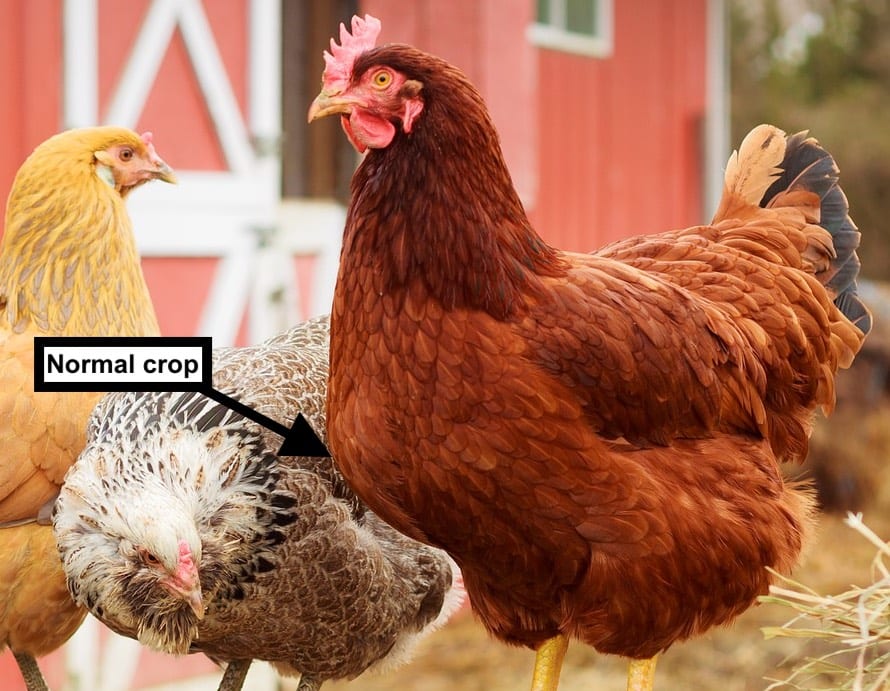How to Recognise and Treat Sour Crop in Chickens
How to Recognise and Treat Sour Crop in Chickens
Sour crop is a common issue many New Zealand chicken keepers may face at some point. If you're noticing something off with one of your chickens, like a squishy crop or sour-smelling breath, you're likely dealing with sour crop.
While it can be alarming, knowing how to recognise and treat sour crop early can make all the difference for your chicken's recovery.
Key takeaways:
- Sour crop is caused by a yeast infection in the crop, leading to swelling and fermentation of food.
- Common symptoms include a squishy crop, lethargy, lack of appetite, and foul-smelling breath.
- Isolating the affected chicken, withholding food for 24 hours, and providing fresh water with apple cider vinegar can help treat mild cases.
- Cleaning and disinfecting feeders and waterers regularly will help prevent the spread of infections.
- Severe or persistent cases should be treated by a vet to avoid further complications.
What is Sour Crop?
Sour crop is a yeast infection in the chicken’s crop, a “storage pouch” located at the base of the neck where food is held before digestion.

The crop, also known as the craw, is a pouch-like organ where chickens store food after swallowing. This allows them to consume large amounts quickly and gradually digest it while they preen, bathe, or rest. Enzymes in the crop start breaking down the food before it continues to the gizzard and stomach for further digestion.
When things go wrong in the crop, yeast like Candida albicans can take over, causing food to ferment instead of being properly digested. This leads to a swollen, squishy crop that doesn't empty overnight like it should. Sour crop, if untreated, can be dangerous and even fatal.
Key Symptoms to Watch For
The crop might seem full and you can feel it when touching after the chicken has eaten This is completely normal.
By morning, the crop should be flat and empty, as the chicken digests food overnight.
When the crop stays full, squishy, or feels like a water balloon, it’s a clear sign something is wrong.
Here’s how to tell if your chicken has sour crop:
- Squishy, swollen crop: The most noticeable symptom is a bloated crop that feels soft to the touch, even in the morning.
- Sour-smelling breath: If you smell a foul odour coming from your chicken’s mouth, it’s another clue.
- Lethargy and poor appetite: Chickens with sour crop often stop eating, become lethargic, and may lose weight quickly.
- Liquid or gas regurgitating from the beak: This can happen if you gently press on the crop, but it’s also a warning sign of more severe cases.
The good news? Catching sour crop early and taking action can usually save your bird.
Immediate Treatment Steps for Sour Crop
If you suspect sour crop in one of your chickens, here’s what you should do:
- Isolate the chicken: First, remove the sick chicken from the flock to prevent the infection from spreading.
- Remove food for 24 hours: The crop needs time to empty itself, so don’t give the chicken any food for at least a full day. Fresh water, however, is essential.
- Disinfect everything: Clean feeders, waterers, and the coop area thoroughly. You want to make sure any yeast or bacteria isn’t lingering in their environment.
- Add apple cider vinegar to water: Many chicken keepers use this natural remedy to balance the crop’s pH levels and kill off harmful fungi like Candida. Add a small amount (about 1 tablespoon per litre) to the water dispenser.
- Massage the Crop: Gently massaging the crop can help break up any blockages. Make sure to do this in a calm, quiet area, as stress can worsen the condition. Be gentle—over-massaging or pressing too hard could cause more harm. If you notice liquid coming out of the chicken’s beak during a massage, stop immediately. This can indicate the crop is too full, and pushing more liquid into the crop could lead to aspiration (where the fluid enters the lungs).
- Provide Grit: Grit helps chickens break down food in their digestive system. Offering a small amount of grit might assist in clearing any minor blockages in the crop. Always ensure your chickens have access to grit as part of their regular diet.
- Probiotics: Once you’re sure the crop is starting to empty, you can give the chicken a commercial probiotic supplement. This helps replenish the good bacteria and restore balance in the gut. We have also heard some people feeding plain, unsweetened greek yogurt to chickens with sour crop. The yogurt contains natural probiotics.
When to Call the Vet:
If your chicken hasn’t improved after 48 hours of home treatment, or if they seem to be getting worse (becoming more lethargic or refusing water), it’s time to consult a vet. In severe cases, the crop may need to be flushed or emptied manually, and the chicken will likely need antifungal medication to clear up the infection.
The Causes of Sour Crop
Understanding what causes sour crop can help you prevent it from happening again.
In most cases, sour crop develops due to an imbalance in the crop's natural bacteria, which allows fungi like Candida to take over.
This imbalance is often triggered by:
- Ingesting foreign objects: Chickens love to peck at anything, but eating things like string, plastic, or even long grass can lead to an impacted crop, which may develop into sour crop.
- Mouldy or spoiled food: Always ensure your chickens have access to fresh, uncontaminated feed. Mouldy feed is one of the biggest culprits for sour crop infections.
- Poor diet: Feeding chickens processed foods or scraps that are high in sugar can disrupt the digestive system. Always stick to a balanced, high-quality chicken feed.
- Antibiotic use: After a round of antibiotics, the normal gut bacteria may be wiped out, allowing yeast to overgrow. This is why it’s important to give probiotics after antibiotic treatments.
- Worm infestations: Heavy worm burdens can interfere with digestion and lead to crop problems.
Preventing sour crop means keeping an eye on what your chickens are eating and ensuring their environment is clean and stress-free.
Read more about preventing diseases in your chicken coop.
Can Sour Crop Lead to Other Issues?
Yes, sour crop can be a sign of deeper issues, such as impacted crop or other digestive disorders.
An impacted crop is where the food or foreign material is physically stuck in the crop, which then becomes a breeding ground for yeast. The key difference between impacted crop and sour crop is the texture—an impacted crop feels hard, whereas sour crop feels squishy. If the impacted crop is not cleared, it can lead to a combination of both conditions.
In some cases, chickens recovering from sour crop may develop a condition known as pendulous crop. This is when the crop is permanently stretched and hangs lower than normal, making it difficult for the chicken to eat and digest food properly. Sadly, pendulous crop is often untreatable.
Preventing Sour Crop in Your Flock
As with many chicken illnesses, prevention is your best line of defence. Here are some practical ways to stop sour crop before it starts:
- Feed Clean, Fresh Food: Always ensure that your chickens are eating clean, mould-free feed. Spoiled or wet feed can harbour harmful bacteria and fungi. Storing feed properly and keeping it dry is essential, especially in New Zealand’s varying climate.
- Disinfect Your Equipment Regularly: Regularly clean feeders and waterers to prevent contamination. Dine-A-Chook’s range of chicken feeders and automatic drinkers are designed to keep feed and water clean, reducing the risk of infection.
- Keep Grass Short: Chickens love foraging, but long grass or fibrous plants can become tangled in their crop. Keeping their foraging areas well-maintained and free from long grasses can help avoid crop impactions.
- Worming and Health Checks: Regularly worming your chickens and checking them for signs of illness ensures their digestive systems stay healthy. A healthy gut is less likely to fall victim to yeast infections like sour crop.
- Offer Grit and Probiotics: Grit helps chickens break down their food, especially when they forage. You can also provide probiotics, especially after any treatments involving antibiotics, to help maintain a healthy balance of gut flora.
When to Seek Professional Help
While mild cases of sour crop can often be treated at home, don’t hesitate to seek help from a vet if your chicken isn’t showing improvement.
Sour crop that persists for more than 48 hours can cause irreversible damage to the crop and lead to other health problems. Severe cases may even require surgery.
If you're unsure about treating your chickens at home, a vet will be able to properly diagnose the issue and recommend the best course of action. In New Zealand, many vets specialise in poultry care and can offer treatments like antifungal medications that aren’t available over the counter.
Final Thoughts on Sour Crop Prevention
Preventing sour crop is about maintaining a healthy, clean environment for your chickens. By regularly cleaning their living space, ensuring they have a well-balanced diet, and keeping an eye out for early symptoms, you can greatly reduce the risk of sour crop affecting your flock.
For a comprehensive guide on keeping your chickens healthy, check out our other blog posts on disease prevention and nutrition. Proper care, combined with automatic feeders and chicken drinkers, can make a world of difference for your flock’s health.
If you need any supplies to help maintain a clean environment, check out our selection of Dine-A-Chook chicken drinker and feeder kits.
We hope your flock stays healthy!
Read next:






